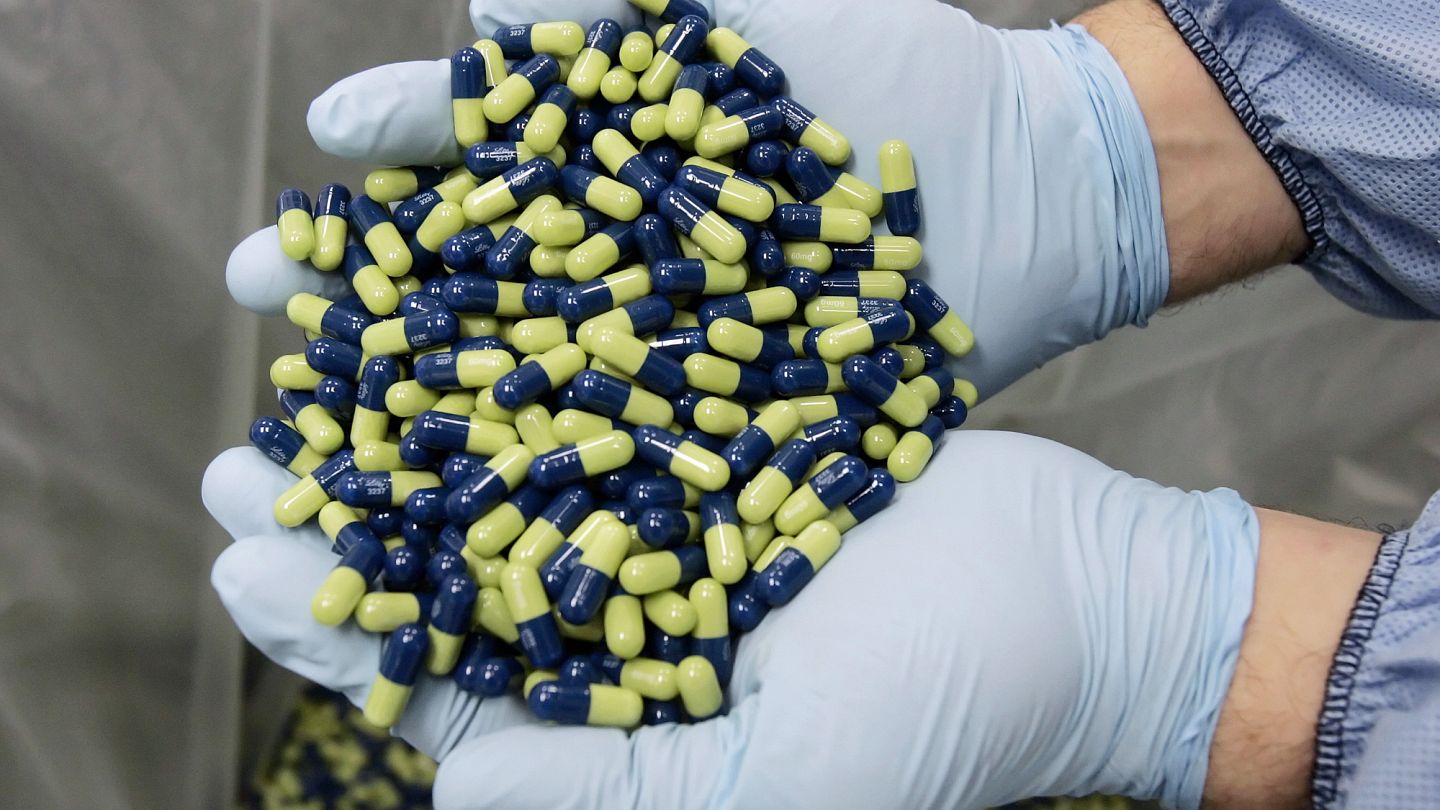
Whether it’s painkillers, antibiotics, or diabetes medication, German pharmacies can hardly do without medicines made in China.
Many colourful pills and powders come off the production line in China every day and later end up in German stomachs. Three-quarters (76 per cent) of all active ingredients for antibiotics imported to Germany now come from China, according to areportby the pharmaceutical association Pro Generika e. V.
Even if medicines are manufactured in India or the United States, the other major players on the global pharmaceutical market still usually contain Chinese ingredients.
The example of the diabetes drug Metformin shows China and India’s role particularly clearly. Among the 22 most important manufacturers globally, 15 are located in India, two in China, and three in Europe, the Pro Generika report found.
Meanwhile, 80 per cent of Germany’s supplies of the chemical compound dicyandiamide, which is needed to make Metformin, comes from China.
Due to the discount agreements negotiated by German health insurance companies, manufacturers have to produce as cheaply as possible, and the cheapest option is usually abroad.
Medicines as leverage
Generic drugs are medicines whose patent protection has expired, which is why they can be produced by anyone. According to a report by the Critical Medicines Alliance, they account for 90 per cent of the medicines categorised as critical in the European Union.
Critical medicines are medicines that are essential for medical care but could be threatened by supply shortages.
They owe their low prices to production in countries such as China or India, where chemical components and tablets can be manufactured much more cheaply. Labour is cheaper there and environmental regulations are less demanding.
“Cheap production abroad was the result of a ‘cheap is cool’ mentality,” said Michael Müller, a professor of pharmaceutical and medicinal chemistry at the University of Freiburg.
“The idea that factories could be brought back to Germany is political wishful thinking. The costs would be enormous and we lack the skilled labour,” he added.
Even rebuilding German production facilities would hardly change the situation: “We can’t produce the required raw materials ourselves. We are clearly dependent on China,” Müller said.
Hundreds of medicines in short supply
In 2024, Germany exported pharmaceutical products worth nearly €4.1 billion to China. Imports of active pharmaceutical ingredients, tablets, and the like from China totalled €722 million, according to figures from the German government.
But the sums of money are deceptive.
A look at the weight shows that Germany sold more than 15 million tonnes of pharmaceutical products to China. Conversely, China sold more than 33 million tonnes to Germany.
If a medicines production site fails, there is often a lack of alternatives, which can result in supply bottlenecks.
The Federal Union of German Associations of Pharmacists has warned that around 500 prescription drugs are difficult to attain, with some facing shortages. Antibiotics for children and medicines for attention-deficit/hyperactivity disorder (ADHD) and asthma are particularly affected.
“Germany used to be the pharmacy of the world, now the pharmacy of the world is in China or India. And if factories there have production problems, this is immediately reflected in the supply in Europe and Germany,” Thomas Preis told Bild am Sonntag. He is the President of the Federal Union of German Pharmacists’ Associations.
Empty pharmacy shelves?
Economists and the pharmaceutical sector have also raised concerns that China could turn off the tap on medicines for Germany or the EU. Beijing’s willingness to use economic dependencies as a means of exerting pressure was already evident in the tariff dispute with US President Donald Trump.
At the time, China’s head of state Xi Jinping imposed export restrictions on rare earths. Trump initially relented.
However, during his recent trip to Asia, Trump signed an agreement with Japanese Prime Minister Sanae Takaichi. Both countries want to work more closely together on rare earths in future and thus become less dependent on China.
Müller, the chemist, doubts that the pharmacy shelves in Germany would really remain empty in a similar case: “In an emergency, Germany would rather open its wallet and buy expensive medicines”.
This was already evident during the COVID-19 pandemic.
Germany and the EU also benefit massively from foreign production: “The medicines market is interconnected. Countries such as China and India are also dependent on Germany. Without the trade relationship, huge numbers of Chinese workers would be out of work,” Müller said.
In order to become more independent in the long term, he called for a greater focus on innovation. Germany could score points, for example, in the development of new medicines or new manufacturing processes.
“The global network is not an enemy, but our opportunity, if we use it wisely,” he said.